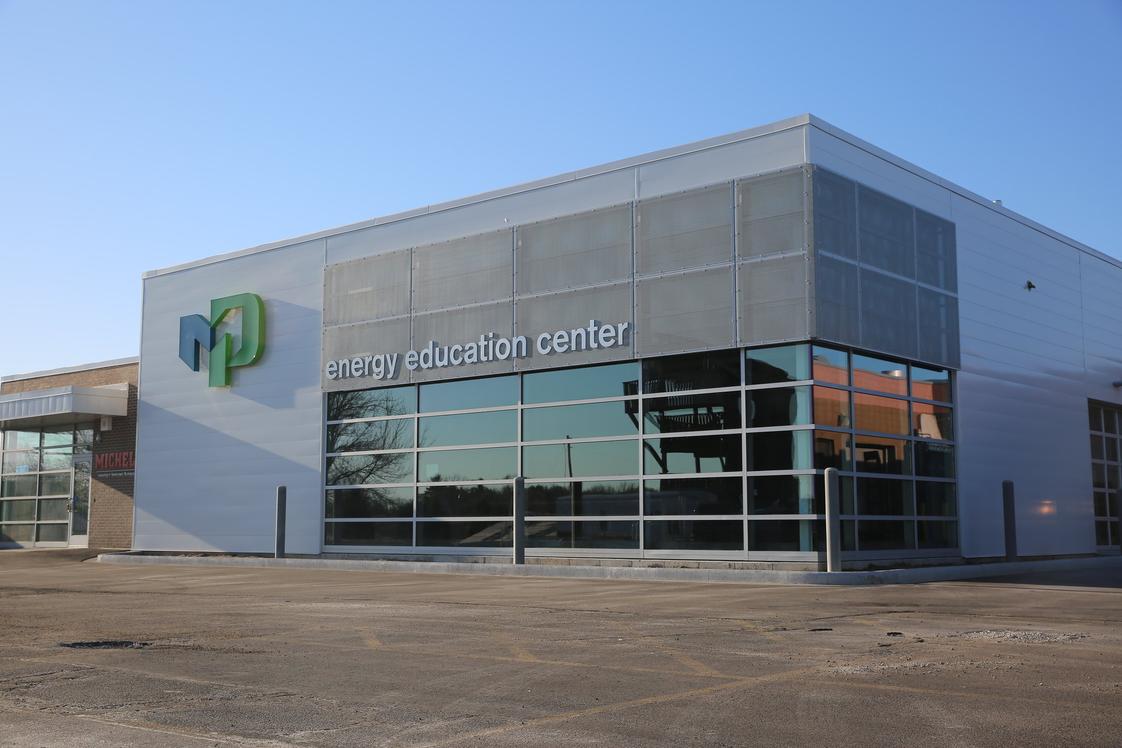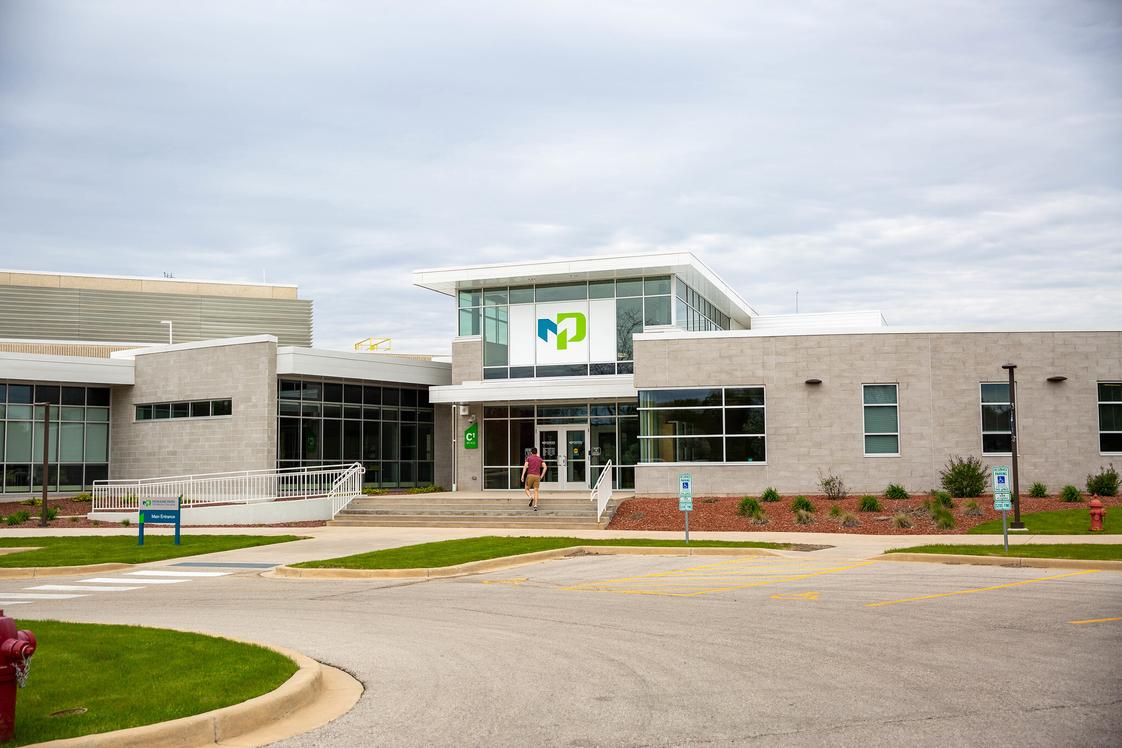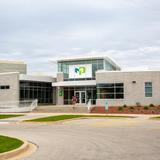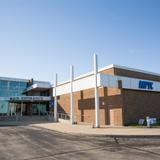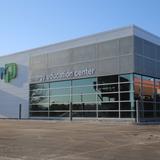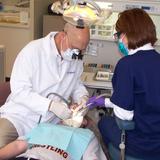- At Moraine Park Technical College, our mission is more than words; it is a promise to inspire, educate and uplift our communities. With locations in Beaver Dam, Fond du Lac, Horicon and West Bend, Moraine Park serves more than 14,000 students from many walks of life each year.
- With a legacy of more than 100 years, Moraine Park proves that Tech is Timeless.
School Highlights
Moraine Park Technical College serves 7,113 students (16% of students are full-time).
The college's student-teacher ratio of 16:1 is same as the state community college average of 16:1.
Minority enrollment is 26% of the student body (majority Hispanic and Black), which is less than the state average of 35%.
Quick Facts (2026)
- Enrollment: 7,113 students
- In-state tuition: $4,151
- Out-state tuition: $6,039
- Acceptance Rate: 65%
- Student-teacher ratio: 16:1
- Minority enrollment: 26%
- Source: Verified school update
School Overview
The teacher population of 446 teachers has stayed relatively flat over five years.
Moraine Park Technical College
(WI) Community College Avg.
Carnegie Classification
Associate's Colleges: High Career & Technical-Mixed Traditional/Nontraditional
Associate's Colleges: High Career & Technical-Mixed Traditional/Nontraditional
Institution Level
At least 2 yrs but < 4 yrs
At least 2 but less than 4 years
Institution Control
Public
Public
Total Faculty
446 staff
419 staff
School Calendar
Student Body
The student population of Moraine Park Technical College has grown by 168% over five years.
The student-teacher ratio of 16:1 has decreased from 33:1 over five years.
The Moraine Park Technical College diversity score of 0.44 is less than the state average of 0.55. The school's diversity has grown by 85% over five years.
Total Enrollment
7,113 students
5,183 students
Student-Teacher Ratio
16:1
16:1
# Full-Time Students
1,107 students
798 students
# Part-Time Students
6,006 students
4,385 students
# Enrollment Undergraduate
711 students
373 students
# Full-Time Undergraduate Students
1,107 students
798 students
# Full-Time Graduate Students
n/a
27 students
# Part-Time Undergraduate Students
6,006 students
4,624 students
# Part-Time Graduate Students
n/a
15 students
Total Dormitory Capacity
n/a
148 students
% American Indian/Alaskan
2%
1%
% Asian
1%
4%
% Hispanic
8%
10%
% Black
5%
9%
% White
74%
65%
% Hawaiian
n/a
n/a
% Two or more races
2%
3%
% Non Resident races
1%
n/a
% Unknown races
7%
8%
Diversity Score
0.44
0.55
College Completion Rate (Students who graduate in less than 4 years)
45%
48%
College Completion Rate (Students who graduate in 4 years or more than 4 years)
n/a
22%
Average Graduate Earnings (10 Years)
$35,900
$34,300
Tuition and Acceptance Rate
The public in-state tuition of $4,151 is less than the state average of $4,194. The in-state tuition has declined by 7% over four years.
The public out-state tuition of $6,039 is less than the state average of $6,373. The out-state tuition has declined by 6% over four years.
In-State Tuition Fees
$4,151
$4,194
Out-State Tuition Fees
$6,039
$6,373
% Students Receiving Some Financial Aid
73%
76%
Median Debt for Graduates
$9,460
$11,250
Median Debt for Dropouts
$4,750
$5,500
Acceptance Rate
65%
88%
ACT Composite
n/a
21
ACT English
n/a
19
ACT Math
n/a
20
Extracurriculars
Total ExtracurricularsTotal Extra-curric.
27 extracurriculars
ExtracurricularsExtra-curric.
Club or Organization:
Accounting ClubAuto Tech Club
CET (Civil Engineering Technology) ClubCNC/Tool and Die Club
Cosmetology ClubCriminal Justice Club
Culinary Arts ClubDiversity Club
Donut ClubElectricity Club
EMS ClubEPD Club
Graphics ClubGUTS (Gas Utility Technicians) Club
Health and Wellness ClubHVAC-R Club
Interactive Media ClubIT Club
MLT (Medical Laboratory Technicians) ClubPhi Theta Kappa Honor Society
Radiography ClubSHRM (Society for Human Resources Management) Club
SME (Society of Manufacturing Engineering) ClubSNA (Student Nurses Association) Club
Student SenateStudent Veterans Association
Welding Club
Source: 2024 (or latest year available) Integrated Postsecondary Education Data System (IPEDS) , School Administrators
School Notes
- Moraine Park Technical College includes four locations, which are embedded into three distinct communities. The Moraine Park District is governed by a nine-member Board of Trustees representing the communities served by the ten-county District.
- Each year, three members are appointed by a committee consisting of the county board chairpersons of the ten counties belonging to the Moraine Park Technical College District: all or the majority of Dodge, Fond du Lac, Green Lake and Washington counties; and portions of Calumet, Columbia, Marquette, Sheboygan, Waushara and Winnebago counties.
Profile last updated:
Frequently Asked Questions
How much does Moraine Park Technical College cost?
Moraine Park Technical College's tuition is approximately $4,151 for In-State students and $6,039 for Out-State students.
What is the acceptance rate of Moraine Park Technical College?
The acceptance rate of Moraine Park Technical College is 65%, which is lower than the state average of 88%.
Recent Articles

5 Key Community College Trends Parents Should Know in 2026
Explore major 2026 community college trends including enrollment changes, costs, career programs, and affordability for parents planning college decisions.

Average Community College Tuition Cost 2026 Update
Explore updated 2026 community college tuition averages, cost trends, planning tips, admissions timing advice, and financial strategies for families and students.

Preparing for Placement Tests in 2026: Student Guide
Preparing for Placement Tests in 2026, what students, parents, and educators need to know about formats, prep strategies, and placement changes.

